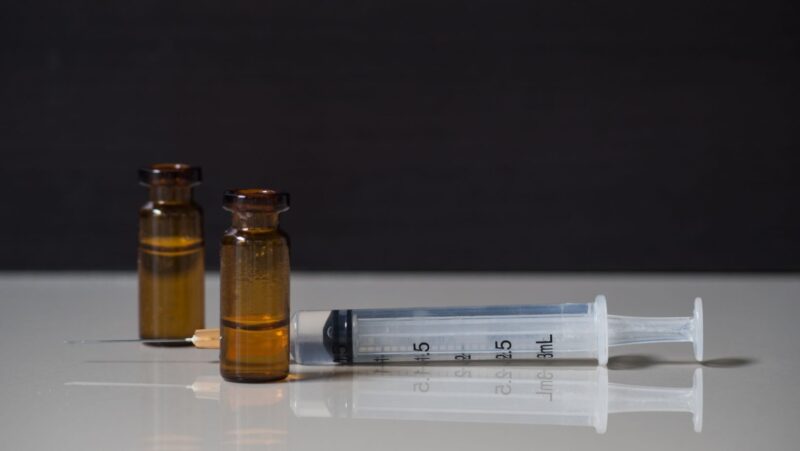
The World Health Organization (WHO) states that about 280 million people worldwide suffer from depression, which increases daily.
Depression changes the course of people’s lives and sometimes makes them dysfunctional. Several treatments and drugs are available clinically, and sometimes they work for patients and heal them.
However, some patients are not responsive to these conventional antidepressants and need something better. People like this have Treatment-Resistant depression, and they don’t get better when they use SSRIs or other drugs.
In cases like this, ketamine can be used to treat depression. It only recently started getting used for this purpose, as it was used as a veterinary anesthetic. It is the only legal psychedelic that clinicians can use to treat patients, and it seems to provide rapid relief for patients on administration.
What Is Ketamine-Assisted Psychotherapy?
Ketamine-assisted psychotherapy is an advanced treatment for depression that uses the therapeutic effects of ketamine to get better results from personalized psychotherapy.
Historically, psychotherapy has been combined with the administration of drugs to potentiate its effects and better heal the patients, for example:
- Psychotherapy sessions have been combined with the administration of naltrexone to cure opioid and alcohol dependence
- Bupropion, an antidepressant, has been used with psychotherapy to help heal adults with an addiction to smoking.
Unlike other antidepressant drugs, ketamine works rapidly, and its effects don’t typically build up in the body of patients. Ketamine shows limited but continuous anesthetic and analgesic effects lasting about 4 to 7 days.

It also has psychedelic effects that will provide patients with a new, clear worldview that will enhance their cognition and enable them to create new neural pathways. When therapy, its effects, and improvements follow, its use will now be reinforced by discussions with doctors, which will help patients experience longer-lasting effects.
How Does Ketamine Perform Its Functions?
Ketamine stimulates the brain to increase the healthy connections between neurons by targeting a glutamate chemical. When these connections are made stronger, it will help patients to manage their intense emotions better and experience positive mood changes.
Animal studies have shown that ketamine increases Brain-Derived Neurotrophic Factor (BDNF) levels, relieving animals of their chronic and acute stress.
In our brains, there is something called the lateral habenula that ketamine also acts on. This lateral habenula controls our ability to think and predict negative consequences, and it is usually very active in people who suffer from depression.
What to Expect From a Ketamine-Assisted Psychotherapy Session
Usually, ketamine-assisted psychotherapy sessions are personalized for each person, depending on their needs. This personalization can have to do with differences in the route of administration, frequency of dosing, or total treatment lengths.
The minimum number of sessions that most clinics advise patients to have is three so that they can experience the benefits of this treatment. The average treatment length should be between 4 – 12 sessions.
The following are the two methods of administering Ketamine-assisted psychotherapy.
- The patient is given a low dose of ketamine to swallow or dissolve in their mouth. After this, they will have discussions with their therapist while experiencing the drug’s effects.
- Ketamine is given through a muscle injection in large amounts, and the patient is then allowed to go on a ‘trip.’ There may be music, and the patient’s eyes will be closed for this experience. The trip will last about 40 minutes, and the patient will discuss it with their therapist afterward.
Who Can Benefit From Ketamine-Assisted Psychotherapy?
Patients who are struggling with
- Depression,
- Trauma,
- Anxiety,
- Addiction and
- Other psychological conditions can use ketamine-assisted psychotherapy.
General Things You Should Know About Ketamine-Assisted Psychotherapy
- The treatment is safe and can be easily administered orally.
- The FDA has only approved ketamine to be used as an anesthetic, but doctors have observed that it improves the symptoms of depression in their patients who have TRD.
- It has no long-term side effects, and patients are not at risk of being addicted to it after administration.
- The treatments can be personalized for each patient based on the conclusions that they come to with their psychotherapists.
- Ketamine will shift a person’s mindset and make them experience positive mood changes and quick results, especially when used with psychotherapy sessions.
On the Whole
Ketamine is a drug that has the notable effect of causing the areas in the brain that form healthy connections to become active. It is the only legal psychedelic that is a very effective treatment option for TRD.

Ketamine-assisted psychotherapy sessions yield rapid results in patients and do not lead to any long-term side effects. It is safe to administer and will not leave patients with the risk of getting addicted.
Frequently Asked Questions:
Can I Drive After My Ketamine-Assisted Psychotherapy Session?
Due to the psychedelic effects of this drug, patients should refrain from engaging in activities that require a lot of concentration for a while after administration. Someone else can drive you home after your session while you process your new feelings.
How Much Will Ketamine-assisted Psychotherapy Sessions Cost?
The cost of these sessions is partly covered by insurance, depending on what insurance scheme you are registered for. However, to know how much your personalized sessions will cost, you should discuss with the clinic that will provide the services.
Is Ketamine-assisted Psychotherapy Effective?
Right from the start, ketamine-assisted psychotherapy has recorded a high success rate in its use as a treatment option for TRD patients. It is highly effective, and patients don’t suffer from its side effects for too long.












